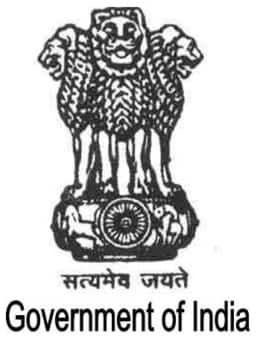Work for the Finance Ministry of India
AS India surges ahead as an Asian economic powerhouse, the general public don’t realise that this has been made possible thanks to the officials who sift through voluminous data to arrive at level-headed economic decisions. Welcome to Indian Economic Service/ISS examination, which paves the way for responsible positions under various arms of the Finance Ministry.

Eligibility: Apart from nationality, age, sex & marital status; the minimum educational requirements from a recognised university is as follows:
-For Indian Economic Service: Postgraduation (PG) in Economics/Applied Economics/Business Economics/Econometrics
- For Indian Statistical Service: PG in Statistics/Applied Statistics/Mathematical Statistics
Related job options | |
Organisation/Department | Positions |
Government Departments such as Department of Economic Affairs, Planning Commission, Agro Economic Research Centre | Economic officers/Research Officers |
Bureau of Energy Efficiency | Assistant Energy Economists |
State Council of Educational Research & Training in different states | Statisticians |
State Government Departments for instance Government of NCT of Delhi (Planning Department) | Assistant Directors (Planning Statistics) |
Academia for instance Jawaharlal Institute of Postgraduate Medical Education & Research; NCERT; Banaras Hindu University | Faculty-Statistics |
Academic institutes such as Institute for Social and Economic Change; State Institute of Education Management and Training UP | Faculty-Economics |
Various Banks for instance Corporation Bank, Allahabad Bank | Economists |
Fees: Rs. 100 payable through a single Central Recruitment Fee Stamp. Fee is exempted for all SC & ST candidates.
 About the Exam
About the Exam
Part-I: Candidates need to appear in the following papers of conventional type. General English and General Studies paper carry 100 marks each in both these exams. For IES, there are four conventional papers on General Economics (I, II, III, & Indian Economics) of 200 marks each. Similarly for ISS, there are four papers of 200 marks each for Statistics (I, II, III, and IV). Total maximum marks thus add to 1000. Duration of each of the six papers is 3 hours.
The standard of papers in General English/General Studies is such that may be expected of a graduate, while the standard in optional subjects is that of Master's degree exam in any Indian university. Candidates are expected to illustrate theory by facts and need to be particularly conversant with problems of Economics/Statistics in the Indian context.
Paper- I on General Economics cover Theory of Demand; Theory of Production; Theory of Value; Theory of Distribution and Welfare Economics: Quantitative methods in Economics. Statistical and Econometrics.
Paper-II covers areas of Economic thought; concept of national income & social accounting; theory of employment, output, inflation, money & finance; financial & capital markets; economic growth and development; international Economics; global institutions including the United Nations, the World Bank, International Monetary Fund (IMF), World Trade Organisation (WTO) and Multi-national companies (MNCs).
Paper-III has questions from public finance, environmental and industrial Economics and state, market &
planning.
Paper IV is on Indian Economics.
Syllabus of ISS exam covers Probability, Statistical Methods & Numerical Analysis in Paper-I. Paper-II covers areas such as Linear Models; Estimation; Multivariate Analysis; Hypotheis testing & Statistical Quality Control. The Statistics-III paper entails Sampling techniques; Design & Analysis of Experiments; Economic Statistics & Econometrics, while Paper-IV has questions from Stochastic processes; Demography; Computer Applications and Data Processing.
Part-II: Interview of 200 marks assesses one’s general/specialised knowledge and ability in academics as also their alertness and intelligence etc.
Articles
Upcoming Exams
Application Date:11 November,2024 - 08 April,2025